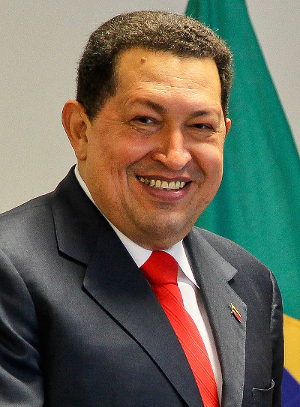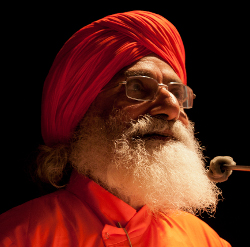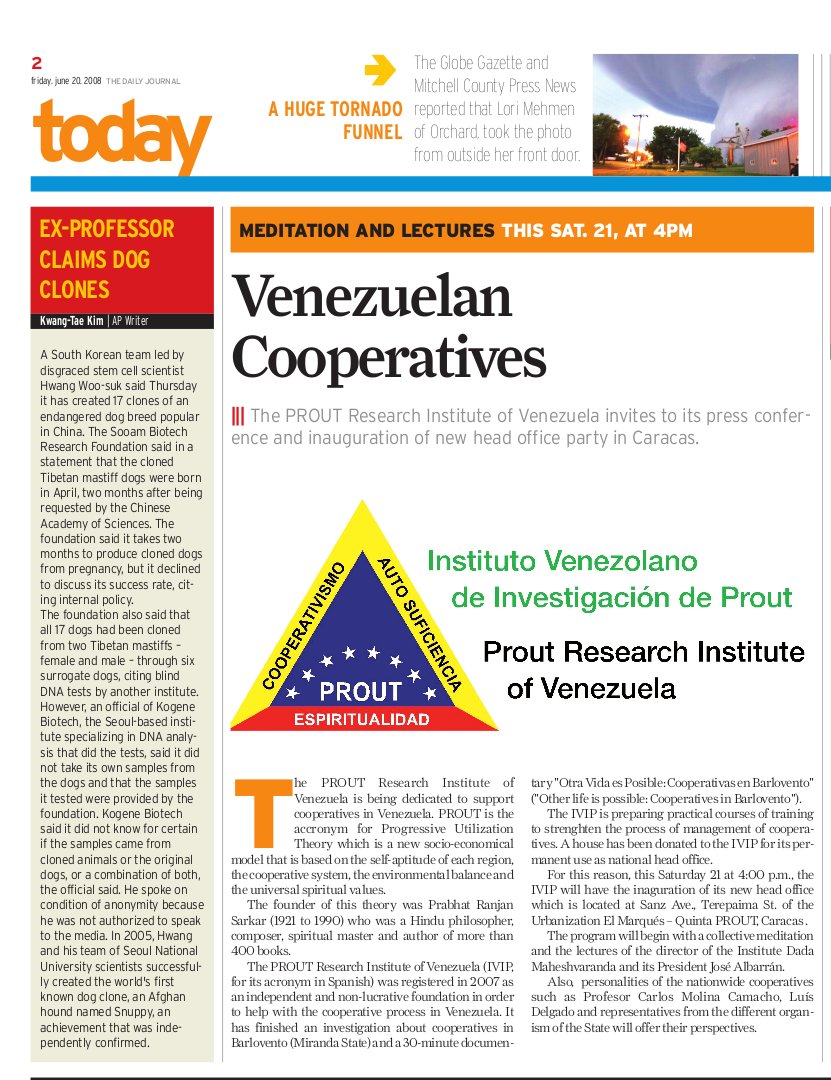 Though the rebels came within a few meters of capturing Pérez, they failed. The military high command arrested Chávez and ordered him to tell the rest of his men to lay down their arms. Wearing his military uniform and red paratrooper beret, this unknown lieutenant-colonel was put in front of live television cameras for 72 seconds so that he could order all his men to surrender. What he said electrified the nation. Invoking the liberation hero Simón Bolívar, Chávez assumed full responsibility for the failure, which almost no Venezuelan leader had ever done before. Then he said that the objectives of this movement were not achieved "for now". As he went to prison, he had suddenly become a national hero to millions who realized that these soldiers were not hungry for power, rather they were risking their lives to save their country. A group of 62 retired generals ran full-page advertisements in newspapers attacking the government and supporting the coup leaders. In his cell Chávez began receiving hundreds of letters a week from supporters.
Though the rebels came within a few meters of capturing Pérez, they failed. The military high command arrested Chávez and ordered him to tell the rest of his men to lay down their arms. Wearing his military uniform and red paratrooper beret, this unknown lieutenant-colonel was put in front of live television cameras for 72 seconds so that he could order all his men to surrender. What he said electrified the nation. Invoking the liberation hero Simón Bolívar, Chávez assumed full responsibility for the failure, which almost no Venezuelan leader had ever done before. Then he said that the objectives of this movement were not achieved "for now". As he went to prison, he had suddenly become a national hero to millions who realized that these soldiers were not hungry for power, rather they were risking their lives to save their country. A group of 62 retired generals ran full-page advertisements in newspapers attacking the government and supporting the coup leaders. In his cell Chávez began receiving hundreds of letters a week from supporters.
 "What is PROUT?" by Dada Maheshvarananda, monk, author, activist, director of the Prout Research Institute of Venezuela. Listen to English audio file. - Download Powerpoint.
"What is PROUT?" by Dada Maheshvarananda, monk, author, activist, director of the Prout Research Institute of Venezuela. Listen to English audio file. - Download Powerpoint.[Presentation at the First Global Prout Conference in Venezuela, "Building a Solidarity Economy based on Ethics and Ecology", 7 to 9 July 2011, Parque Central - Sala 1, Caracas]
 Solidarity, cooperation, and community empowerment are positive values promoted in Venezuela in contrast to the individualism and selfishness promoted by the corporate-owned mass media. Cooperatives are quietly transforming people's values in Venezuela, and the rest of the world, though they have been mostly ignored by the mass media and by many political leaders, too.
Solidarity, cooperation, and community empowerment are positive values promoted in Venezuela in contrast to the individualism and selfishness promoted by the corporate-owned mass media. Cooperatives are quietly transforming people's values in Venezuela, and the rest of the world, though they have been mostly ignored by the mass media and by many political leaders, too.The International Cooperative Alliance defines a cooperative as "an autonomous association of persons united voluntarily to meet their common economic, social, and cultural needs and aspirations through a jointly-owned and democratically-controlled enterprise.” Worker cooperatives develop trust, solidarity, and teamwork.
Because cooperatives promote socialist values, it is natural that the Bolivarian government once promoted cooperatives in Venezuela; what is surprising is that now it does not.
 “The Bank of Development of Women: A Grassroots Tool for the Construction of a Feminist Solidarity Economy" by Nora Castañeda, president of Banmujer, former professor of public administration and economic development at the Central Venezuela University (UCV). Watch the video. Listen to the English audio file or audio file in Spanish. Read original Spanish presentation.
“The Bank of Development of Women: A Grassroots Tool for the Construction of a Feminist Solidarity Economy" by Nora Castañeda, president of Banmujer, former professor of public administration and economic development at the Central Venezuela University (UCV). Watch the video. Listen to the English audio file or audio file in Spanish. Read original Spanish presentation. On Saturday, October 4, 2013, many friends of the PROUT Research Institute of Venezuela gathered to give a warm send-off to long-term community members Eugenio, Cris, and Mario. This lovely family has given selflessly of their time, energy, and resources in their two-and-a-half years at PROUT, and we wanted to celebrate them and their friendship before they head off to Yaracuy for their next project. Twenty-five friends gathered to eat delicious food, laugh and tell stories, including neighbors who participate in daily yoga classes at PROUT, an organizer from AISEC, professors and graduate students from Universidad Nacional Experimental Simón Rodríguez, our organization's lawyer and his wife, and PROUT residents and volunteers. Cris, Eugenio, and Mario have meant so much to all of us, and we wish them the best in their next adventure.
On Saturday, October 4, 2013, many friends of the PROUT Research Institute of Venezuela gathered to give a warm send-off to long-term community members Eugenio, Cris, and Mario. This lovely family has given selflessly of their time, energy, and resources in their two-and-a-half years at PROUT, and we wanted to celebrate them and their friendship before they head off to Yaracuy for their next project. Twenty-five friends gathered to eat delicious food, laugh and tell stories, including neighbors who participate in daily yoga classes at PROUT, an organizer from AISEC, professors and graduate students from Universidad Nacional Experimental Simón Rodríguez, our organization's lawyer and his wife, and PROUT residents and volunteers. Cris, Eugenio, and Mario have meant so much to all of us, and we wish them the best in their next adventure. “Neo-humanist Education for Peace”: Keynote Address at the Global Conference on Neohumanist Education, Universidad Central de Venezuela, Caracas, Venezuela on April 14, 2014 by Dr. Shambhushivananda, Chancellor, Ananda Marga Gurukula University, Anandanagar, India
“Neo-humanist Education for Peace”: Keynote Address at the Global Conference on Neohumanist Education, Universidad Central de Venezuela, Caracas, Venezuela on April 14, 2014 by Dr. Shambhushivananda, Chancellor, Ananda Marga Gurukula University, Anandanagar, IndiaLooking back, about 8000 million years ago (mya), this Earth was only a blazing ball of fire; 4000 mya, it consisted of molten lava and volcanoes; 340 mya life existed only in water; 223 mya land appeared as Gondwanaland; 70 mya birds and mammals appeared; one mya human beings appeared on the scene… We should not assume that we have come to an end of this evolutionary ladder. Through physical metamorphosis and psychic transmutations, we seem to continue to move on.
 “Innovation in Organizations of the Social Economy” by Prof. Benito Díaz, Editor of CAYAPA (Venezuelan Journal of Social Economy), Venezuela Board of CIRIEC, Professor at the Universidad de Los Andes – Trujillo. Watch the video. Listen to the English audio file or audio file in Spanish. - Read the original Spanish presentation.[Translation of his presentation at the First Global Prout Conference in Venezuela, "Building a Solidarity Economy based on Ethics and Ecology", July 7-9, 2011, Caracas.]
“Innovation in Organizations of the Social Economy” by Prof. Benito Díaz, Editor of CAYAPA (Venezuelan Journal of Social Economy), Venezuela Board of CIRIEC, Professor at the Universidad de Los Andes – Trujillo. Watch the video. Listen to the English audio file or audio file in Spanish. - Read the original Spanish presentation.[Translation of his presentation at the First Global Prout Conference in Venezuela, "Building a Solidarity Economy based on Ethics and Ecology", July 7-9, 2011, Caracas.]




